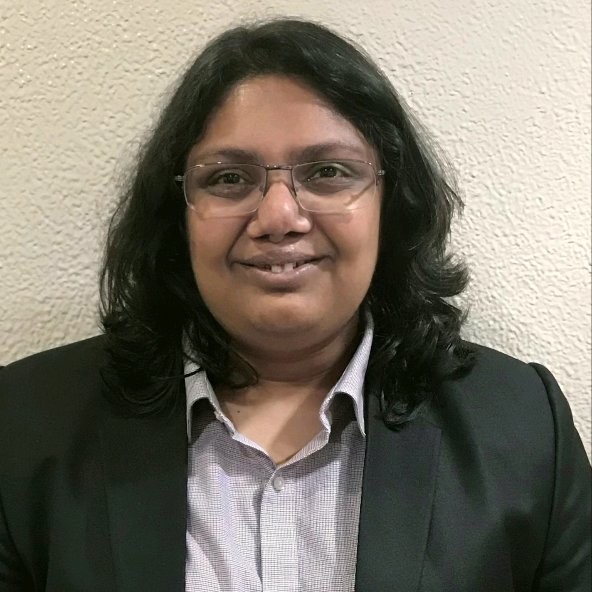
This interview has been published by Priyanka Karwa and The SuperLawyer Team
Please tell us about your educational background and the path that led you to pursue a career in law, particularly specializing in competition law?
I have always had a keen interest in economics and competition law. I studied an optional paper on competition law while pursuing B.A. LLB (Hons) at Hidayatullah National Law University, Raipur and participated in a few antitrust law moot court competitions. I graduated in 2013. During the first couple of years post my graduation, I was working across general corporate and project finance. But even during this period, I was closely involved in adjudicating competition law moot court competitions and academic writings related to the field. So eventually, I decided to pursue a specialized post graduate degree course in competition law in order to switch to this practice area.
What motivated you to focus on competition law, and how did your LLM in Competition Law from King’s College, London contribute to your expertise in this field?
As I mentioned, I was always interested in competition law as an academic stream and a practice area. I had interned in various competition law teams during my undergraduate degree and I had worked with the alumni from King’s. I also researched about the faculty in various universities offering an LLM in Competition Law and the faculty at King’s seemed to be a remarkable group of full time academicians, practitioners and ex-members of competition regulators from various jurisdictions. I had an offer from a few other universities in London and in the USA, but I ultimately decided to go to King’s. I would always encourage people to check the particular department they are interested in before deciding on a university, as this is directly related to the kind of exposure you would get and the type of people you will be networking with. This will decide the kind of opportunities you will likely encounter post your degree. Given the diverse academic and professional background of the faculty at King’s, I feel studying at King’s not only offered me a good insight into the practice of competition law in mature jurisdictions like the UK, EU and USA, but also helped me understand varied perspectives on the subject – that of academic scholars, practitioners and people who had been involved in policy making. Such understanding and exposure helps shape your own approach towards the practice area and definitely contributes immensely to your learning curve.
Could you share some of your experiences and highlights from your work as a Partner at P&A Law Offices, especially in the area of merger control? What are some notable cases you have worked on and the outcomes you achieved?
I have had the opportunity of working on some challenging combination filings as well as gun jumping cases, during my stint at P&A. One case that stands out is the Amazon-Future Retail case, where the Competition Commission of India (CCI) has passed an order keeping in abeyance an approval granted by it more than two years ago. This case is currently pending in appeal before the Supreme Court. It is one of the most interesting and challenging cases I have worked on not only because it involved a lot of economic analysis during the filing and review of the notification itself, but also because it involves a lot of important questions around the interpretation of the CCI’s powers of review in relation to combinations and the threshold for establishing a case of gun jumping and non-disclosure or misrepresentation in combination filings.
In the field of enforcement and litigation, you have represented major companies like Tata Steel and Amazon. Can you discuss a specific case where you successfully defended a client against allegations of cartelization or unfair trade practices?
I have personally worked on a cartel investigation against the Bearings Division of Tata Steel and I would consider that case to be a success as well, because despite the fact that the investigation was initiated on the basis of two leniency applications, no penalty was ultimately imposed on the opposite parties. It was quite an interesting case as it involved a lot of economic analysis of challenges faced bythe industry as such as well as examination of the evidence on record to prepare our defense. I have, in the past, successfully represented Amazon in some informations that were dismissed by the CCI at the prima facie stage itself. However, with the shift in regulatory focus since the publication of the market study on e-commerce in India, digital markets are facing increased scrutiny and it is immensely humbling and rewarding, at the same time, to have the opportunity to work on cases which will set the regulatory standards for e-commerce in India.
As an advocate, you have also been involved in coaching and adjudicating various moot court competitions. How have these experiences shaped your understanding of competition law and its practical application?
I have always believed that the learning of law transcends the classroom and moot courts are definitely one of the best ways to achieve conceptual clarity and test your skills of interpreting the law. This is more so in the case of Indian competition law, as the regime itself is barely a decade old and the body of jurisprudence is still evolving. And given the underlying economic and commercial analysis that is inherent to this field of law, mooting can certainly provide budding competition lawyers with the necessary skillset of legal analysis, research, procedural nuances and interpretation which can help them in the actual practice of the law.
Apart from your legal work, you have also published articles on topics related to competition law and commercial dispute resolution. Can you briefly discuss the key points of one of your publications and its significance in the context of the Indian legal landscape?
I think one of my first publications in the field of competition law was an article on the approach taken by the CCI in 2015 in relation to online marketplaces like Amazon, Flipkart and Snapdeal and highlighted how the CCI affirmed the principle that competition law is for the protection of the market as such, and not individual competitors. The e-commerce sector was still evolving at that time and the regulatory intervention was limited. In fact, it is serendipitous that my dissertation during my LLM was on merger review standards for multi-sided platform markets and I eventually went on to work on such cases involving digital markets. And now the regulatory focus is changing in light of the evolution of e-commerce in India in the last few years and the need of the hour is to balance the incentive for innovation while protecting competition.
In your opinion, what are the emerging trends and challenges in the field of competition law in India, and how do you think the legal profession can adapt to these changes?
I think these are some exciting times for practitioners of competition law, given the review of the last decade of enforcement of the Competition Act and the new amendments that have been introduced (and some of which that are yet to come into force). Both the merger control regime as well as the enforcement regime are set to undergo significant changes, both procedurally as well as substantively. Recent and proposed changes such as the introduction of confidentiality rings, green channel combination filings, settlement and commitment mechanisms, etc. are yet to be tested on ground, against the unique Indian commercial reality. This is already making businesses as well as legal practitioners recalibrate the conventional approach that was carefully developed over the past decade. I think the only thing that any legal professional (not just competition law professionals) can do is to be open to new learnings, think outside the box and adapt to the changing regulatory landscape. Learning is always a continuous process in the legal profession and that is the way to cope with evolving legal systems.
Can you share any memorable experiences or lessons you have learned throughout your career that have had a significant impact on your professional growth?
I believe you can always find something to learn from every new case and from every new person that you come across. It’s tough to choose any one experience which has shaped my professional growth. But if I have to cite one instance, then it would probably be working on a writ challenge that we had filed on behalf of a client against an ex parte prima facie order issued by the CCI, directing an investigation against our client. We were before the Karnataka High Court and Mr. Gopal Subramanium was leading us in the matter. The admission stage hearing went on for three consecutive days and we eventually got an interim stay. But those three days were harrowing as well as exciting. I personally believe, that I learnt the most – in terms of statutory interpretation, legal analysis, preparing for briefings and just a general sense of grit and resilience that this profession demands. Of course, working with Mr. Subramanium is a cherishable experience in itself. But I believe those three days shaped not only my knowledge of law but also my work ethic itself.
What are your future goals and aspirations in the field of law, and what steps do you plan to take to achieve them?
I have always admired the confluence of academia and practice in the education system abroad, in countries like the UK and USA. Being taught by both practicing lawyers and academics certainly gives you a more holistic perspective of the subject you are studying. I don’t see that as a very common practice in India and I personally, would like to get into academics at some point, along side my practice. I have been involved in a few guest lectures from time to time over the last couple of years, but I would like to be more involved in academics going forward. For which I need to manage my own time better, and I guess I shall focus on that this year.
Finally, considering your extensive experience in the legal field, what advice would you give to law students or fresh graduates who are interested in pursuing a career in competition law?
It is a challenging as well as rewarding area of practice. While it can be exciting to be a part of a niche practice area and an evolving system of jurisprudence, it can be equally challenging, as it will push you to push your own boundaries. While an LLM/specialization in this subject will help you connect with like-minded peers and professionals, it cannot replace hands-on learning. As I have said earlier, the learning curve is much steeper outside classrooms – in moot courts and internships. So if you are interested in this area of practice, you should focus on building your publications in this subject, participate in moots concerning this subject, intern with competition law teams to acquaint yourself with the law as well as individuals practicing this law.
Get in touch with Anubhuti Mishra-























